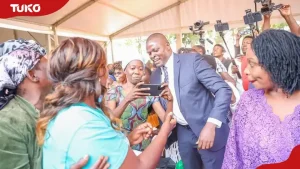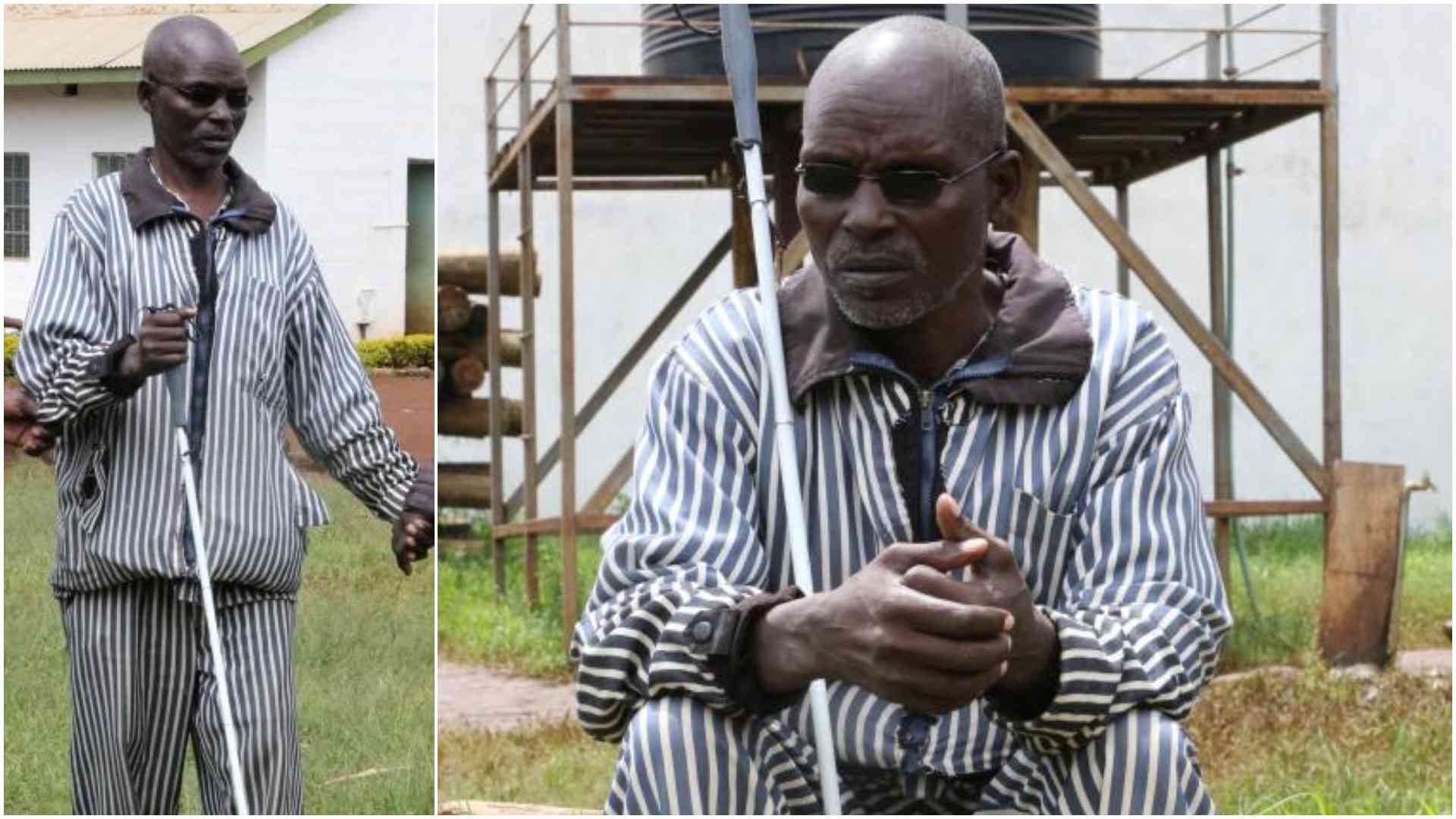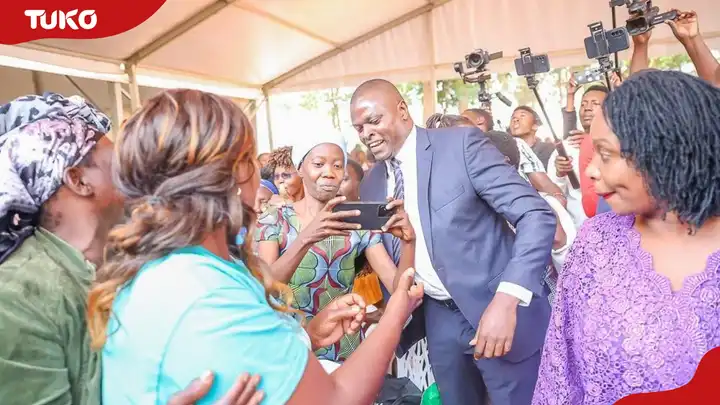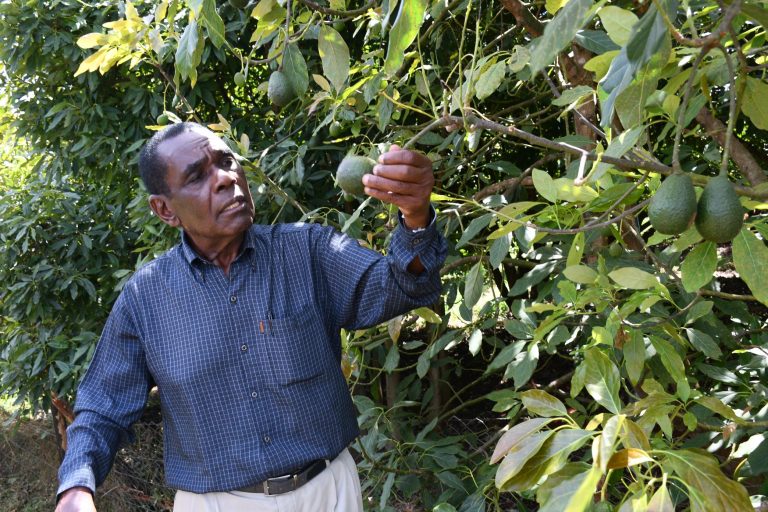After spending 14 years behind bars for a crime he has always maintained he did not commit, Ezekiel Chelimo is finally free, although the years in prison have left him broken in more ways than one.
Chelimo, now 77, was convicted in 2011 for the defilement of a four-year-old girl contrary to section 8(3) of the Sexual Offences Act No 3 of 2006, a charge that shattered his world and tore him away from his family and livelihood.
For over a decade, he languished in prison, a place he describes as “a slow death”. In that time, he lost not only his freedom but also his eyesight.
On April 28, Chelimo was among a group of 57 inmates granted presidential pardon in a clemency initiative aimed at decongesting prisons and offering a second chance to elderly and reformed convicts.
As he stepped out of the Eldoret GK prison gates on May 5, aided by a cane and a warden, he said only one word – Freedom.
Before his incarceration, Chelimo was a respected elder, a farmer, and a mediator in his village.
Neighbours described him as gentle and devout, a man who spent more time settling disputes than creating them. The allegations that led to his arrest shocked many who knew him.
An Eldoret court found him guilty of defilement, and he was sentenced on July 28, 2011, to serve a life imprisonment sentence.
According to the particulars of the offence, at about 2pm in August 2010 at Kapkatui Sub-location of Keiyo District, he intentionally and unlawfully had carnal knowledge of a child four years and 11 months old.
In the alternative, he was charged with the offence of indecent act with a child.
Chelimo, a father of six, always maintained his innocence, claiming he was framed.
Despite numerous appeals before High Court and Appellate judges, including former Chief Justice David Maraga, he lost all his three appeals.
In his latest appeal, which he sought for a reduction of his sentence and was dismissed by Justice Stephen Githinji, the court described him as a real fighter who does not easily give up.
“In prison, you have time to think, but for me, it was more like time to grieve,” Chelimo said in a brief statement to the press. “I grieved my life, my family, and the injustice I felt.”
He was not blind when he first entered Eldoret prison. At the time of his arrest in August 2010, Chelimo’s eyesight was good.
In 2013, while serving his sentence at Naivasha Maximum Prison, his eyesight began deteriorating.
“My blindness was as a result of my passion for welding. I do not blame anyone,” he said.
No bitterness
He has lost count of the times he had to be taken to hospital for treatment to at least regain his sight.
He had been serving his sentence in different prisons around the country, including Naivasha, Nakuru, Kibos, and Kamiti Maximum, before his family members requested that he be maintained at the Eldoret GK Prison, where they would visit him and monitor his health status.
“I have visited various hospitals, including Rasia General Hospital, Kenyatta, and Moi Teaching and Referral Hospital, but all was in vain,” he added.
Now fully blind, he navigates the world slowly, relying on memory and the hands of others.
Despite his physical condition, Chelimo says he holds no bitterness. “If you carry anger in prison, you die before your body does,” he said. “I had to find peace to survive knowing that I will never see my children age or my wife, who has been waiting for me for over a decade.”
When news of his release reached his village in Bugar, Kapchemutwa in Keiyo North, a small crowd gathered to travel to Eldoret to welcome him back.
His youngest son clung to his hand during the emotional reunion.
“We have been waiting in anticipation for this day. I dropped out of school when my father was sentenced because all our resources were spent on filing his appeal cases. We have suffered over the years, but today is a new beginning for our family,” said Timothy Kibet, Chelimo’s young son.
Chelimo’s brother Dominic Cherusei said his brother was a resilient man who held their family together even when he was behind bars.
Community elders led by Rev Raymond Komen have called on the government to offer medical assistance and support for Chelimo, particularly in managing his blindness and reintegration.
“As a church, we are grateful for his release, but this man needs help. He comes home with nothing but wounds we cannot see, but we are hoping that all will be well,” said Komen.
Chelimo’s release has reignited calls for a review of past convictions, especially those involving the elderly and vulnerable.
Kimutai Kirui of the Centre Against Torture is urging the Judiciary to revisit such cases where doubt still lingers.
“Power of Mercy is a significant step towards helping the vulnerable, but justice must also mean clearing names, not just opening prison doors,” said Kirui.
As for Mzee Chelimo, he says he wants to spend his remaining years in peace. “I may not see the sky again, but I feel the sun on my face. That is enough for now.”
By












